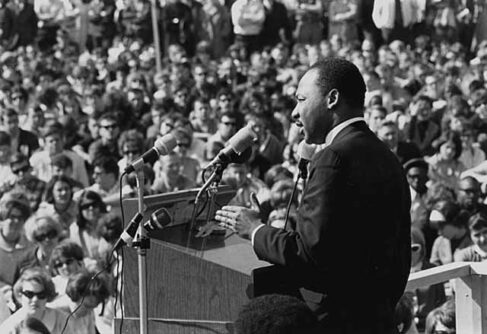Reforming public education is hard—really hard. Dale Russakoff details the challenges in The Prize: Who’s In Charge of America’s Schools, her justly acclaimed examination of what went awry when Newark Mayor Cory Booker, Governor Chris Christy, and Facebook founder and philanthropist Mark Zuckerberg came together to attempt “transformation” reform of Newark’s dismal public school system.
Although the story Russakoff tells is much broader than the failure of Zuckerberg’s $100 million dollar gift that underpinned the reform effort, the failure of that enormous gift is a key part of her story. (This isn’t the first failure of a large philanthropic gift to transform public K–12 education—one might also think of the $500 million Annenberg Challenge of two decades ago, and earlier large-scale efforts by the Ford Foundation and others.)
Why can’t philanthropy, even on a very grand scale, make for transformational education reform? One clue that the Zuckerberg gift would not easily change Newark schools is that money was never the real problem in Newark—the budget was already about $20,000 per student, when, according to Russakoff, the per-student budget was under $10,000 in nearly half of U.S. states.
But the reasons that Zuckerberg’s philanthropy met with so little success in Newark are far deeper than money. Among them is the deep skepticism among parents that reform is possible, and so their refusal to support any reform efforts.
This phenomenon is perfectly illustrated by a story told by Russakoff about one involved mother who strongly opposed reform efforts in Newark: this mother estimated that 40% of the staff at her daughter’s school were inadequate, and so one might think that this would be exactly the sort of parent who would support reforms. But, to the contrary, she adamantly opposed the new superintendent’s efforts to change the school’s teaching staff. Why? This mother already knew which teachers on the current roster were good and which were not—and she’d figured out how to pressure school staff to ensure her daughter was placed in the classes of quality teachers. In other words, she knew how to game the dysfunctional school system and was unwilling to take a chance on change. When the involved parents like this mother resist reforms, the prospects of reform are dim indeed.
But a more fundamental problem is the tension between the democratic import of public education and the aristocratic character of philanthropy on the scale of Zuckerberg’s. Russakoff writes:
Almost all philanthropy is by definition undemocratic, its priorities set by wealthy donors and boards of trustees, who by extension can shape the direction of public policy in faraway communities.
Now, I might quibble about “almost all philanthropy” being undemocratic—a significant fraction of U.S. philanthropy is carried out by relatively small donors. But certainly gifts in the multi-million dollar range like the Zuckerberg gift are undemocratic in the sense that the few citizens can make gifts on that scale.
But it’s more precise to say that these enormous gifts are “aristocratic” than “undemocratic”—they reflect an older, aristocratic ethos that especially wealthy and successful individuals should be patrons who shape their country’s culture through their philanthropy.
It’s the aristocratic character of large-scale philanthropy that makes it such a difficult fit with education reform, because education in a democracy, and especially public K–12 education, is so thoroughly bound up with our democratic ethos, as American philosopher and education reformer John Dewey described:
The devotion of democracy to education is a familiar fact. The superficial explanation is that a governing resting upon popular suffrage cannot be successful unless those who elect and who obey their governors are elected. … But there is a deeper explanation. A democracy is more than a form of government; it is primarily a mode of associated living, of conjoint communicated experience. [In a democracy] each has to refer his own action to that of others, and to consider the action of others to give point and direction to his own, [which] is equivalent to the breaking down of those barriers of class, race, and national territory…
Because public K–12 education is so bound up with the democratic effort to break down barriers, parents, teachers, and others involved in public education tend to be uneasy with even the most well-intentioned aristocratic reformers like Mark Zuckerberg.
Russakoff seems to think that Zuckerberg learned from his failures in Newark better to navigate the tension between the democratic character of public education and the aristocratic nature of his philanthropy, as his newest philanthropic venture is a $125 million gift to Bay Area schools where there is to be much closer consultation with parents, teachers, and local school leaders than was the case in Newark. For Zuckerberg and other very wealthy philanthropists, navigating between the democratic ethos of public education and the aristocratic ethos of their philanthropy would seem to be a key prerequisite for any successful intervention in public education.






